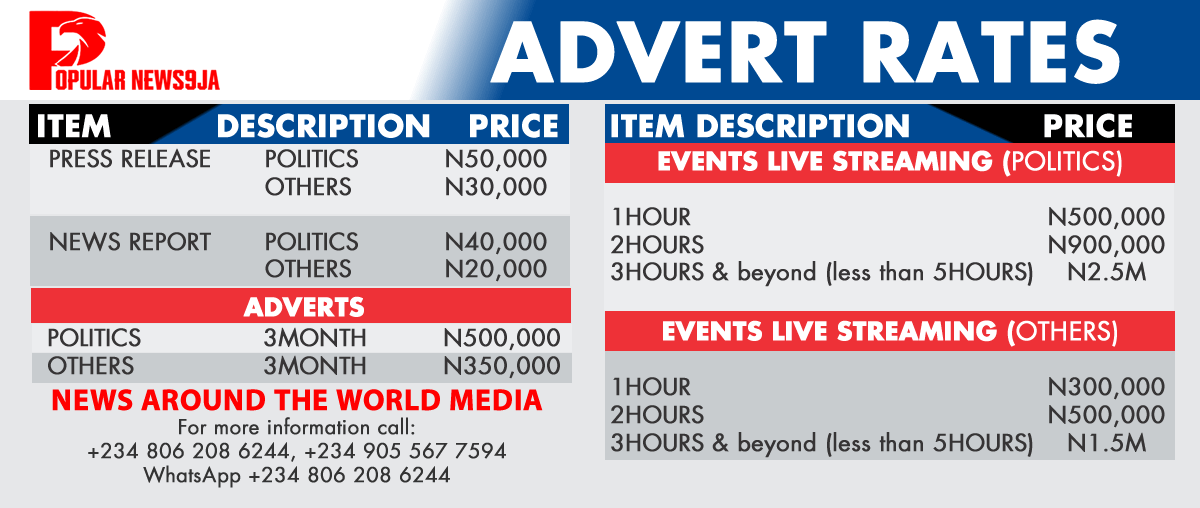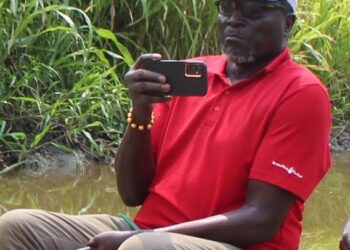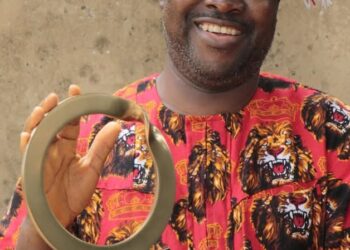In a bid to tackle the triple global threats of plastic pollution, climate change, and biodiversity loss within the Niger Delta Basin Waterways, Managing Director(MD) of Niger Delta Basin Development Authority (NDBDA), Hon. Prince Ebitimi Amgbare, has hinted on plans to lunch the ‘NDBDA Waterways Sanitation Corps’ in celebration of World Oceans Day.
Hon. Prince Amgbare hinted at this development during a courtesy visit by Ms. Rita Solari Inko-Tariah, Ocean Ambassador, Intergovernmental Oceanographic Commission of UNESCO (IOC-UNESCO) and Technical Partner of NDBDA, who met with the Managing Director at the Authority’s headquarters in Port Harcourt as part of activities marking World Environment Day 2025.
The Managing Director of the Niger Delta Basin Development Authority (NDBDA), represented by Engr. Odes Solomon Sakawi, highlighted the significance of the 2025 World Environment Day theme, “Beat Plastic Pollution.” This theme focuses on the harmful effects of plastic waste on the environment, including oceans, water bodies, wildlife, and human health.
The proposed NDBDA Waterways Sanitation Corps is a strategic fit with President Bola Ahmed Tinubu’s Renewed Hope Agenda, which seeks to unlock Nigeria’s vast blue economy potential. This initiative underscores the Authority’s dedication to promoting environmental sustainability and driving economic growth in the Niger Delta region.
Hon. Amgbare expressed concern that the Niger Delta’s critical ecosystem, which sustains a wide range of plant and animal life, is under threat due to poor sanitation. “The region’s economy, driven by fishing, tourism, and other water-based industries, stands to lose substantially if environmental degradation persists, undermining efforts towards sustainable development.
“This initiative aligns with United Nations Sustainable Development Goals (SDGs) 6 (Clean Water and Sanitation), 13 (Climate Action), and 14 (Life Below Water). In line with this, our Authority is poised to launch the NDBDA Waterways Sanitation Corps, aimed at tackling plastic pollution in Niger Delta waterways. This effort forms part of a broader strategy to address environmental challenges in the oil-rich region, promote a sustainable blue economy, and create jobs and income opportunities for coastal communities.
“The NDBDA Waterways Sanitation Corps will have key responsibilities, including: ensuring the health and sustainability of Niger Delta waterways and marine ecosystems through effective sanitation management, mobilizing communities to participate in sanitation and conservation efforts, promoting awareness on protecting marine ecosystems, safeguarding marine ecosystems from pollution and degradation and supporting regional biodiversity and ecological balance.
“By ensuring clean and sustainable waterways, the NDBDA Waterways Sanitation Corps will support the growth of the blue economy, facilitating activities such as fishing, transportation, and tourism. We will work closely with government agencies, corporate organizations, security agencies, and other stakeholders to achieve our goals in water resources management and sanitation.
“In line with President Tinubu’s Renewed Hope Agenda, we’ve renamed our Department of Hydrology to ‘Department of Hydrology & Blue Economy’. This change reflects our focus on tapping into the vast opportunities offered by the blue economy, as spearheaded by the Federal Ministry of Marine and Blue Economy.
“The region’s waterways and ecosystems face significant threats from rising temperatures, changing precipitation patterns, and more frequent extreme weather events. Furthermore, limited awareness and education among local communities about the importance of waterway sanitation impede efforts to adopt sustainable practices.
“Inadequate waterway sanitation poses significant health risks, including the spread of cholera, diarrhea, and typhoid fever, which can devastate vulnerable coastal communities. Empowering these communities through targeted programs and investing in waste management, sanitation facilities, and green technologies are vital steps towards mitigating pollution and fostering sustainability.
“The Blue Economy concept focuses on harnessing ocean and water resources sustainably for economic growth, improved livelihoods, and environmental conservation. Nigeria’s maritime sector offers vast opportunities for economic development, and the Authority’s initiative is a strategic step forward,” the Managing Director elaborated.
Ms. Rita Solari Inko-Tariah, Ocean Ambassador of IOC-UNESCO and founder of Solari Skills And Entrepreneurship Development Centre, Port Harcourt, shared the UN Secretary-General’s message for World Environment Day 2025. The Secretary-General emphasized the urgent need to address plastic pollution, which is harming ecosystems, human well-being, and the climate, saying it ‘is choking our planet’.
“Plastic waste clogs rivers, pollutes the ocean, and endangers wildlife. And as it breaks down into smaller and smaller parts, it infiltrates every corner of Earth: from the top of Mount Everest, to the depths of the ocean; from human brains; to human breastmilk,” he further lamented.
Also, delivering the message of Inger Andersen, Executive Director of UNEP, Ms. Inko-Tariah emphasized the need for immediate action. Real change, she noted, can be driven by markets, consumer choices, policy incentives, and financial flows. To contribute, individuals can take simple yet impactful steps, such as using reusable bags, avoiding single-use plastics, and choosing eco-friendly products.
“We must work collectively to combat plastic pollution by encouraging businesses and governments to adopt circular economy models that minimize waste. Education plays a key role, raising awareness about the impact of plastic pollution can drive behavioral change. Together, we can create a cleaner, healthier planet by reducing plastic waste and promoting sustainable practices,” Ms. Rita Solari Inko-Tariah reiterated.














Discussion about this post